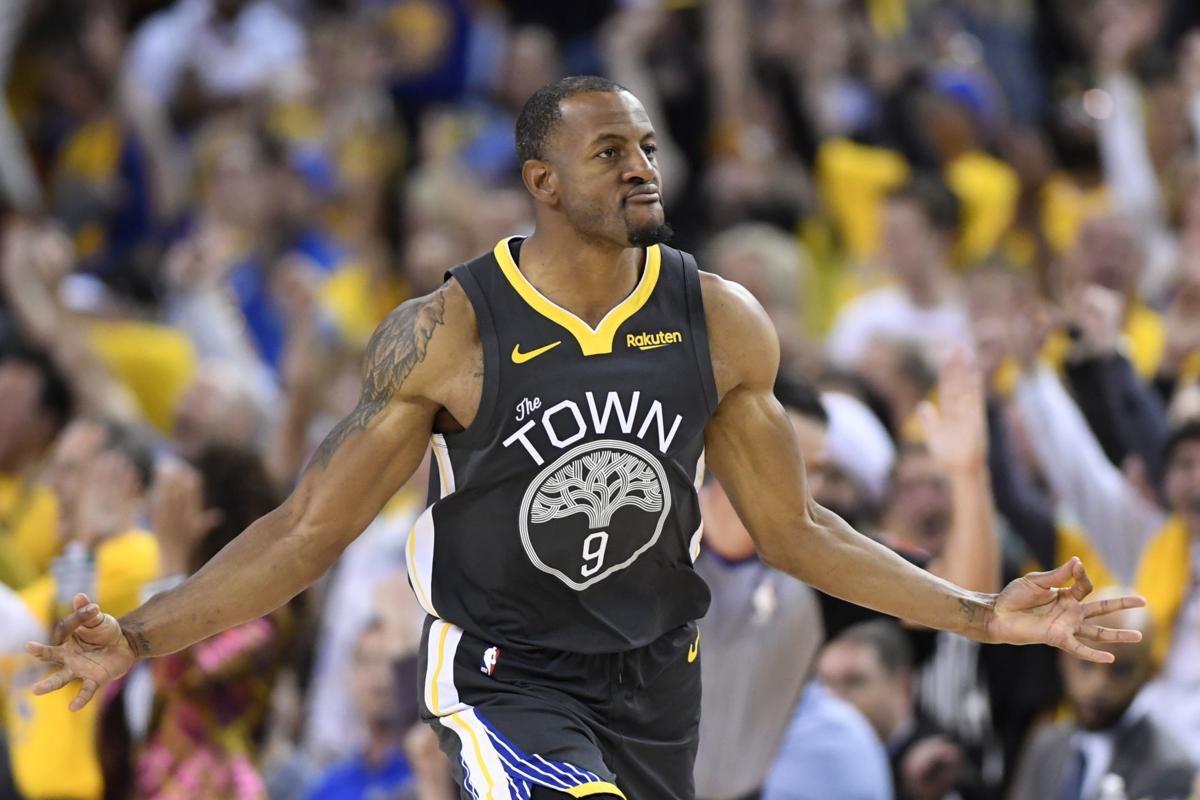I sat down at 7 p.m., Thursday planning to read the first chapter of Andre Iguodala’s book “The Sixth Man: A Memoir,” and nurse it through the next few days.
At midnight, I put it down. It was absorbing.
There is no vanilla, no blah-blah-blah in the biography by Arizona’s 2004 All-Pac-10 basketball player. The first third of Iguodala’s book is a strong and consuming narrative of his upbringing in a black community in Springfield, Illinois, and his step-by-step, unvarnished development as an elite basketball player, both in Springfield and Tucson.
“My goal was to get as far away from Springfield as possible,” he writes. “When I got to Tucson, I had never seen so many white people assembled in one place. It was a culture shock of the highest order.”
Iguodala’s initial reaction to Lute Olson: “There was something ruthless about him. I don’t mean that in a bad way, necessarily. When I was done working with him, I still wasn’t clear on whether I liked him.”
But he praised Olson’s ability to make him a better ballplayer. “One thing was certain; he taught me the game of basketball like no one else ever had,” Iguodala writes.

Iguodala writes about his step-by-step, unvarnished development as an elite player.
He similarly praises Golden State coach Steve Kerr and former Wildcat teammate and ex-Warriors assistant and interim coach Luke Walton.
Iguodala, a first-round draft pick of the Philadelphia 76ers in 2004, the NBA Finals MVP of 2015 and a 2012 Olympic gold medalist, does not waste space. Every paragraph about being raised in the attic of a Springfield house by his single mother — about her insistence that he be a dedicated student and rise above the temptations of his lower-economic and racially charged neighborhood — is incisive.
He did not leave Tucson as an advocate of the college basketball system. He refers to it as “Blackness against the Machine.”
“It’s not about education, it’s about sports,” Iguodala writes, “We help with ticket sales, TV rights, jersey sales, concessions, branding, enrollment and we help with recruiting. We were basically part of the marketing and administration departments. That was a large part of the reason I began to think about leaving college early.”
Although Iguodala says he was a 3.0 student in his two seasons at Arizona, he writes that the UA did not care if he got “an actual education, just that we remained eligible. Students take BS classes and have their homework completed by tutors.
“NCAA basketball is a racket and players are the only one’s losing. There is no purity in the game.”
Iguodala, 35, has been paid $136 million in his NBA career. He has one year remaining with the Warriors, at $17.1 million. He spends the last half of his book with a descriptive log of his professional career, from the grind to the glory.
If anything is missing from “The Sixth Man,” it’s that he doesn’t touch on his family or personal life beyond his college days, and doesn’t address his growing reputation as a businessman, especially as a tech investor in the Silicon Valley industry.
Perhaps he’ll share that in a sequel to “The Sixth Man.”






